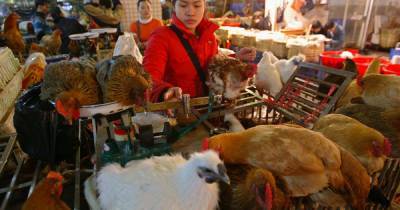
dailystar.co.uk
35%
383
Disease X pandemic worse than Covid could break out in wet markets, warns ex-WHO expert
Covid if it doesn't agree on new rules for wet markets and international travel, a former WHO scientist has warned Professor Mark Woolhouse was on the World Health Organisation team that began urging the world to get ready for a devastating unknown Disease X in 2017.The professor of infectious disease epidemiology told the Daily Star that "very difficult conversations" needed to be had on wet markets and international travel and trade.A market selling fresh meat and fish in Wuhan, China, is believed to be where the virus jumped from bats to humans, leading to more than two million people worldwide so far.The scientist at the University of Edinburgh added that safety rules around vaccines may need to be relaxed so they could be made in a